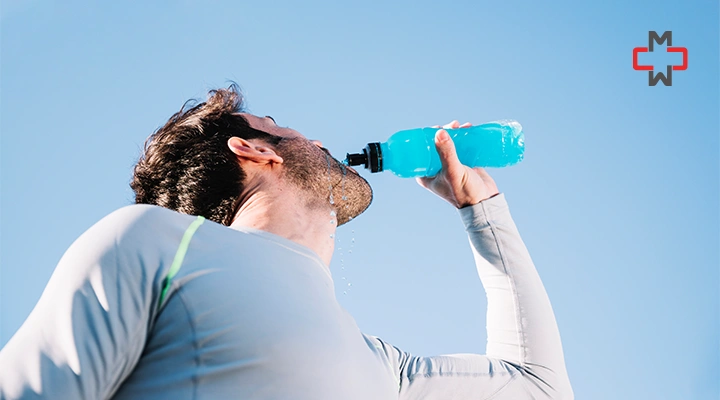Echocardiogram Testing
in NYC
Your heart is pumping non-stop, maintaining your blood flow – or in other words, keeping you alive every second of the day. Ensuring that your heart stays in perfect health is the least we can do to help you live a long and fulfilling life.
Our experts at Manhattan Medical Arts include world-class, board-certified cardiologists – who diligently work everyday to provide preventive care, as well as cure for any forthcoming or unmasked heart disease.
What is an
Echocardiogram?
An echocardiogram, also called an echo test, is a non-invasive ultrasound of the heart that uses high frequency sound waves to create pictures of your heart. These real-time images help us see the heart’s chambers, heart valves, muscle, and surrounding blood vessels, without using radiation.
At Manhattan Medical Arts, our board-certified cardiologists use advanced imaging technology to diagnose and manage heart-related conditions quickly and effectively. Our clinic in Manhattan, NYC, provides both walk-in and scheduled echocardiogram testing. If you’re searching for an Echocardiogram Specialist, we offer expertise you can trust. We’re a top-rated destination for patients searching for an echocardiogram near me in New York City.
Types of Echocardiogram
We Offer
We perform a wide range of echocardiography services in our New York City office:
Transthoracic Echocardiogram (TTE)
- The most common type of echo test
- A sound wave transducer is moved over your chest with a warm gel to create 2D or 3D images
- Evaluates blood flow, heart rhythm, heart muscle function, and heart valves
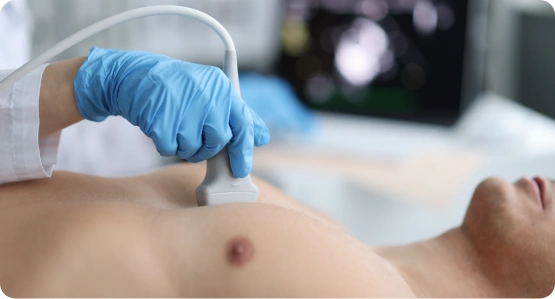
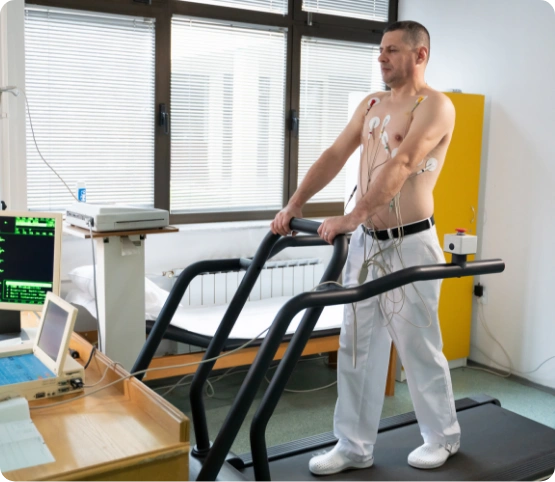
Stress Echocardiogram
- Assesses your heart before and after physical activity using a treadmill or stationary bicycle
- If unable to exercise, a pharmacologic stress test is done using medication
- Helps detect coronary artery disease, heart attack risk, or irregular heartbeat
- We also offer exercise stress echocardiogram as a preferred choice for those physically able to walk or run
- This form of stress echocardiography can provide more functional insights into how well your heart responds under pressure
Transesophageal Echocardiogram (TEE)
- Used when clearer images of the heart valves, aorta, or chambers are needed
- A probe is gently inserted down your throat after sedation
- Particularly useful for evaluating valve disease, blood clots, and infection


Dobutamine Stress Echo
- For those who can’t exercise, dobutamine mimics physical stress
- Used to evaluate how the heart pumps blood under stress
Intravascular Echocardiogram (ICE)
- A specialized procedure done during cardiac catheterization
- Offers internal imaging of the major blood vessels and heart walls
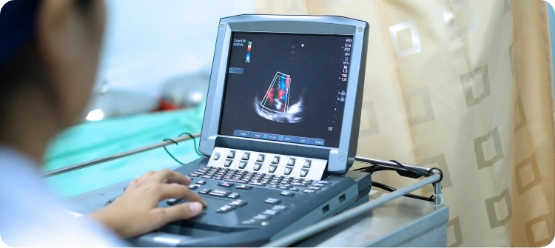
Why You Might Need
an Echo Test
Our cardiac sonographers and physicians may recommend an echo test if you experience:
- Chest pain or shortness of breath
- Swelling in your legs or feet
- Irregular heartbeat or palpitations
- Heart murmur heard during exam
- History of heart disease, high blood pressure, or valve problems
We use echocardiography to:
- Detect congenital heart disease or birth defects
- Assess function after a heart attack
- Monitor heart medications or post-surgical recovery
- Diagnose conditions like aortic valve disease, cardiomyopathy, or pulmonary hypertension
We also assess the function of both the heart and blood vessels to ensure your entire cardiovascular system is working properly. Echocardiograms are among the most essential heart tests used today for diagnosing heart conditions safely and accurately.
What to Expect During Your
Echo Test
An echo test is a quick and painless procedure, usually done in 30 to 45 minutes.
You’ll change into a hospital gown and lie on an exam table, usually on your left side
Sticky patches (electrodes) are placed on your chest to monitor your heart’s electrical activity
A cardiac sonographer uses an ultrasound probe to apply slight pressure and move across your chest
The machine uses sound waves to create images of your heart structure and blood flow
A blood pressure cuff may be placed on your arm to monitor circulation throughout the test
In a stress test, you’ll walk on a treadmill or exercise bike, or receive medication if unable to exercise. For TEE, sedation is used and you must not eat or drink for a few hours beforehand.
Echocardiogram Results &
Interpretation
After your echo test:
A cardiologist reviews your heart’s size, pumping strength, valve condition, and presence of any fluid, clots, or muscle damage
You may learn if you have signs of valve disease, low blood pressure, heart failure, or blood clots
How long does it take to get echo results?
In most cases, results are available within a few hours to two business days. Your provider will also help in reading an echocardiogram, explaining every part of your report in detail.
Special Testing
Fetal & Strain Echocardiography
Fetal echocardiography assesses the unborn baby’s heart through the pregnant person’s belly
Strain imaging evaluates subtle changes in heart muscle for cancer patients or those with diabetes medication concerns
Common Questions About
Echocardiograms
What is a transthoracic echocardiogram?
A TTE is a basic echo test where sound waves are used to create images through the chest wall.
How much does an echocardiogram cost in NYC?
Echo test pricing varies between $300 to $2,000. At our Manhattan office, we offer transparent pricing and accept most insurance plans.
Can I self-refer for an echocardiogram?
Most insurance plans require a doctor’s referral, but you can book a consultation with our primary care or cardiology team who will evaluate your need.
What’s the difference between an echocardiogram and EKG?
An EKG measures electrical activity, while an echo shows moving pictures of your heart using sound waves.
Insurance &
Payment Info
We accept a wide range of insurances including Medicare, Medicaid, Aetna, Empire, and more. Our billing team can explain your copay, coinsurance, and deductibles before your test.
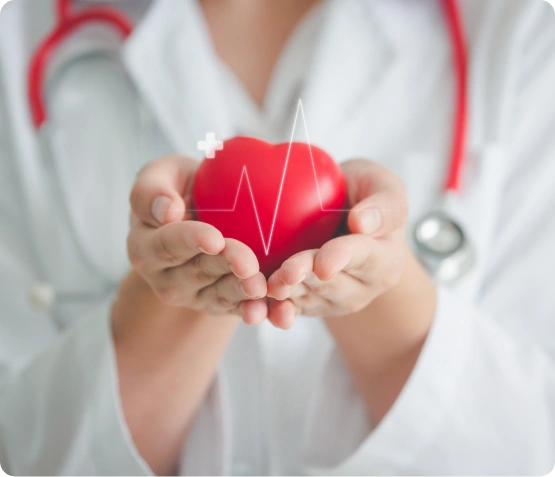
Why Choose
Manhattan Medical Arts?
- Led by Dr. Dennis A. Ehrich, M.D., FACC, a board-certified cardiologist
- Decades of experience in reading and interpreting advanced heart imaging
- Faster appointments than NYC other clinics and hospitals
- Convenient Manhattan location, accessible by subway, bus, or walk-in
We are proud to be a trusted destination for anyone seeking an Echocardiogram in Manhattan.
Is Echocardiogram
Testing Safe
Echocardiograms are safe, non-invasive, and don’t use radiation. Rarely, contrast agents may be used to improve image clarity. Mild side effects like an allergic reaction or throat discomfort (for TEE) may occur.
If you experience a serious allergic reaction, notify your healthcare provider immediately.
Where Can I Get an
Echocardiogram in NYC?
Visit us at Manhattan Medical Arts for stress echo, TTE, TEE, and advanced diagnostic imaging. We provide:
Echo testing for chest pain, valve disease, and coronary arteries
Trained cardiac sonographers and in-house cardiologists
Latest Blog Posts
Making primary care accessible

